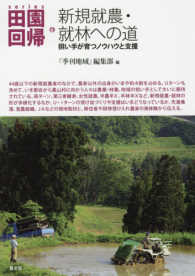Full Description
The Routledge Handbook of Language and Superdiversity provides an accessible and authoritative overview of this growing area, the linguistic analysis of interaction in superdiverse cities. Developed as a descriptive term to account for the increasingly stratified processes and effects of migration in Western Europe, 'superdiversity' has the potential to contribute to an enhanced understanding of mobility, complexity, and change, with theoretical, practical, global, and methodological reach.
With seven sections edited by leading names, the handbook includes 35 state-of-the art chapters from international authorities. The handbook adopts a truly interdisciplinary approach, covering:
Cultural heritage
Sport
Law
Education
Business and entrepreneurship
The result is a truly comprehensive account of how people live, work and communicate in superdiverse spaces.
This volume is key reading for all those engaged in the study and research of Language and Superdiversity within Applied Linguistics, Linguistic Anthropology and related areas.
Contents
Introduction; PART I - Language and superdiversity: Repertoires, registers, and linguistic diversity; Linguistic (super)diversity, post-multilingualism and translanguaging moments; Superdiversity perspective and the sociolinguistics of social media; Superdiversity as a lens to understand complexities; ""All the people speak bad English"". Communicating across differences in a super-diverse context; PART II - Researching communication in superdiverse contexts: Superdiversity and linguistic ethnography: researching people and language in motion; Blurred vision? ""Superdiversity"" as a lens in research on communication in border contexts; Using researcher vignettes to explore co-production in a large diverse team: implications for research in superdiverse contexts; Moving methods online: Researching digital language practices; Reflecting on the ethics of researching communities.../part contents








